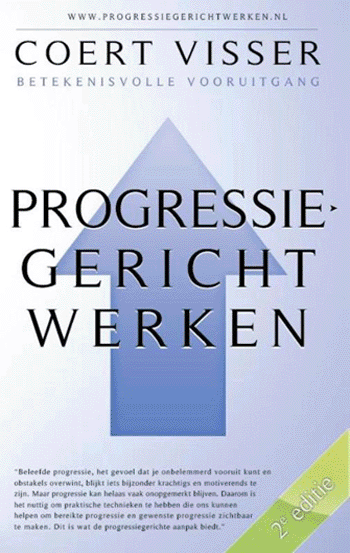Zelfconcordante doelen → effectieve zelfregulatie → progressie
In Zelfconcordantietheorie noemde ik dat Vasalampi, Salmela-Aro, & Nurmi (2009) empirische steunen vonden voor de zelfconcordantietheorie die stelt dat persoonlijke doelen hebben die gekozen zijn voor autonome redenen doelgerichte inspanning verhoogt en daardoor progressie in de richting van het doel. Progressie, op haar beurt, leidt tot een toename van subjectief welbevinden en aanpassing.” Twee recentere studies bevestigen de relatie tussen zelfconcordante doelen en progressie maar vonden dat deze relatie gemedieerd wordt door verschillende andere variabelen.
| Trainingen Progressiegericht Werken |
1) Een eerste onderzoek vond een mediërende rol voor implementatieplanning:
Implementation planning as a pathway between goal motivation and goal progress for academic and physical activity goals – Carraro & Gaudreau (2011)
The aim of this prospective study was to investigate the role of self-concordance and implementation planning on the progress made by university students in the pursuit of their academic and physical activity goals over a 1-month period. A sample of 205 students completed measures of self-concordance at Time 1, and implementation planning and goal progress at Time 2. Results of structural equation modeling analyses indicated that implementation planning partially mediated the relationship between self-concordance and academic goal progress, and fully mediated this relationship for goals related to physical activity. The results attest to the importance of selecting goals that are congruent with the self and the use of planning strategies for the facilitation of goal progress in 2 life domains.
2) Een tweede onderzoek vond een mediërende rol voor inspanning, actieplanning en coping.
From goal motivation to goal progress: The mediating role of coping in the Self-Concordance Model – Gaudreau, Carraro, & Miranda (2011)
The present studies examined the mediating role of self-regulatory mechanisms in the relationship between goal motivation and goal progress in the Self-Concordance Model. First, a systematic review, using meta-analytical path analysis, supported the mediating role of effort and action planning in the positive association between autonomous goal motivation and goal progress. Second, results from two additional empirical studies, using structural equation modeling, lent credence to the mediating role of coping in the relationship between goal motivation and goal progress of university students. Autonomous goal motivation was positively associated with task-oriented coping, which predicted greater goal progress during midterm exams (Study 1, N=702) and at the end of the semester in a different sample (Study 2, N=167). Controlled goal motivation was associated with greater disengagement-oriented coping (Study 1 and Study 2) and lesser use of task-oriented coping (Study 2), which reduced goal progress. These results held up after controlling for perceived stress (Study 2). Our findings highlight the importance of coping in the “inception-to-attainment” goal process because autonomous goal motivation indirectly rather than directly predicts goal progress of university students through their usage of task-oriented coping.
Het lijkt erop dat zelfconcordante doelen het gebruik van effectieve zelfregulatiestrategieën vergroot, zoals implementatieplanning, actieplanning, inspanning en coping wat op zijn beurt leidt tot progressie.



3 Comments
Nieuw onderzoek: autonome motivatie bevordert zelfregulatie door aandacht voor en emotionele reacties op fouten te verhogen http://www.michaelinzlicht.com/wp/wp-content/uploads/downloads/2012/09/Legault-Inzlicht-in-press.pdf
[…] deze doelen worden nagestreefd voor zelfconcordante redenen (meer over zelfconcordantie hier en hier). Een steekproef van 220 eerstefase studenten vulden voor hun tussentijdse examens vragenlijsten […]
[…] aan bij concepten die ik eerder noemde op deze site zoals zelfconcordantietheorie (zie hier en hier) en ‘fit of goals’ (passendheid van doelen; zie dit […]